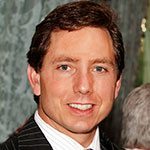Colony’s CIO: Get in Front of Global Capital
With just one week until Privcap’s Real Estate Game Change conference in Chicago, Colony Capital’s chief investment officer, Kevin Traenkle, took time out to share his thoughts on game-changers that could reshape the institutional real estate market. Traenkle will be speaking at the event alongside Dune Real Estate’s Dan Neidich and LaSalle Investment Management’s Jeff Jacobson.
Investing where banks are not investing.

A general pullback by traditional banks has left a void that would ideally be filled by private real estate investment capital. “New regulatory requirements are forcing banks to reduce risk relative to what they have participated in the past,” says Traenkle. “This reduction in risk has made them more conservative and on a net basis they are not lending as much.”
Traenkle says that in an asset class as large as real estate, even a marginal pullback translates to potentially hundreds of billions of dollars leaving the space over time. “In any industry where there is a dislocation or structural changes it takes time for the marketplace to find its way to equilibrium.” As the market balances out there will be demand for new sources of capital and “mispricings” that will benefit savvy investors.
Over the next three years there will be a sizable stream of maturing loans in the U.S., which originated at the height of the last cycle. With less bank activity on the lending side, “loans that can’t be financed—situations where equity owners are underwater, distressed loans, workouts, and restructurings—will all need to take place while there is less availability of bank capital,” says Traenkle. “And when you look at Europe, the situation is even more pronounced.”
Filling the lending gaps is where Traenkle sees major opportunity. “People providing capital where banks aren’t today can achieve yields that are attractive versus the risk they are taking.”
Playing demographic trends, targeting industrial, urban and high-end retail
Urbanization is a theme that has been playing out in many top-tier global markets. The surge of educated and well-employed people moving to large urban centers will drive investment opportunity.
“As we get critical mass in urban areas, there are more people, which translates into more foot traffic and, thus, more value,” Traenkle says. “This is especially true for higher-end retail.”
Traenkle sees additional potential throughout the retail supply chain as companies play off the rise in the buying public. “Retail requires infrastructure and major components are the warehouses and distribution centers,” he explains. “If all this inventory isn’t housed in retail centers it needs to be stored somewhere.”
Traenkle’s upbeat perspective includes the soaring world of online shopping. “Even if we have drones delivering to everyone, the drones have to pick up inventory from somewhere,” he says.
Getting ahead of global capital flows
There is the rush of money headed to the U.S. from international sources, as investors search for yield and seek safe havens from volatile markets.
“We’re continuing to see capital flows from foreign jurisdictions looking to get exposure to U.S.[dollar]-denominated hard assets,” Traenkle says. “In China the devaluation of the yuan has made people who own yuan-denominated assets think about diversifying. Turmoil in the Middle East is creating a flight to safety, and in Europe they have a whole slate of issues—all of which has made the stability of the U.S. attractive on a capital preservation basis.”
As large volumes of capital flow towards the U.S., Traenkle suggests domestic managers and investors position themselves accordingly. “Core, gateway markets seem to be the product of choice for foreign capital. Helping foreign capital place their money into products that suit their needs will certainly be a good business to be in. Getting in front of the wave is never a bad thing.”
With just one week until Privcap’s Real Estate Game Change conference in Chicago, Colony Capital’s chief investment officer, Kevin Traenkle, shares his thoughts on game-changers that could reshape the institutional real estate market.